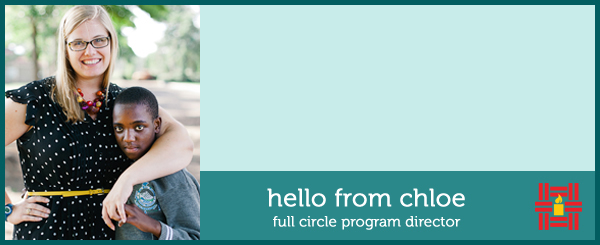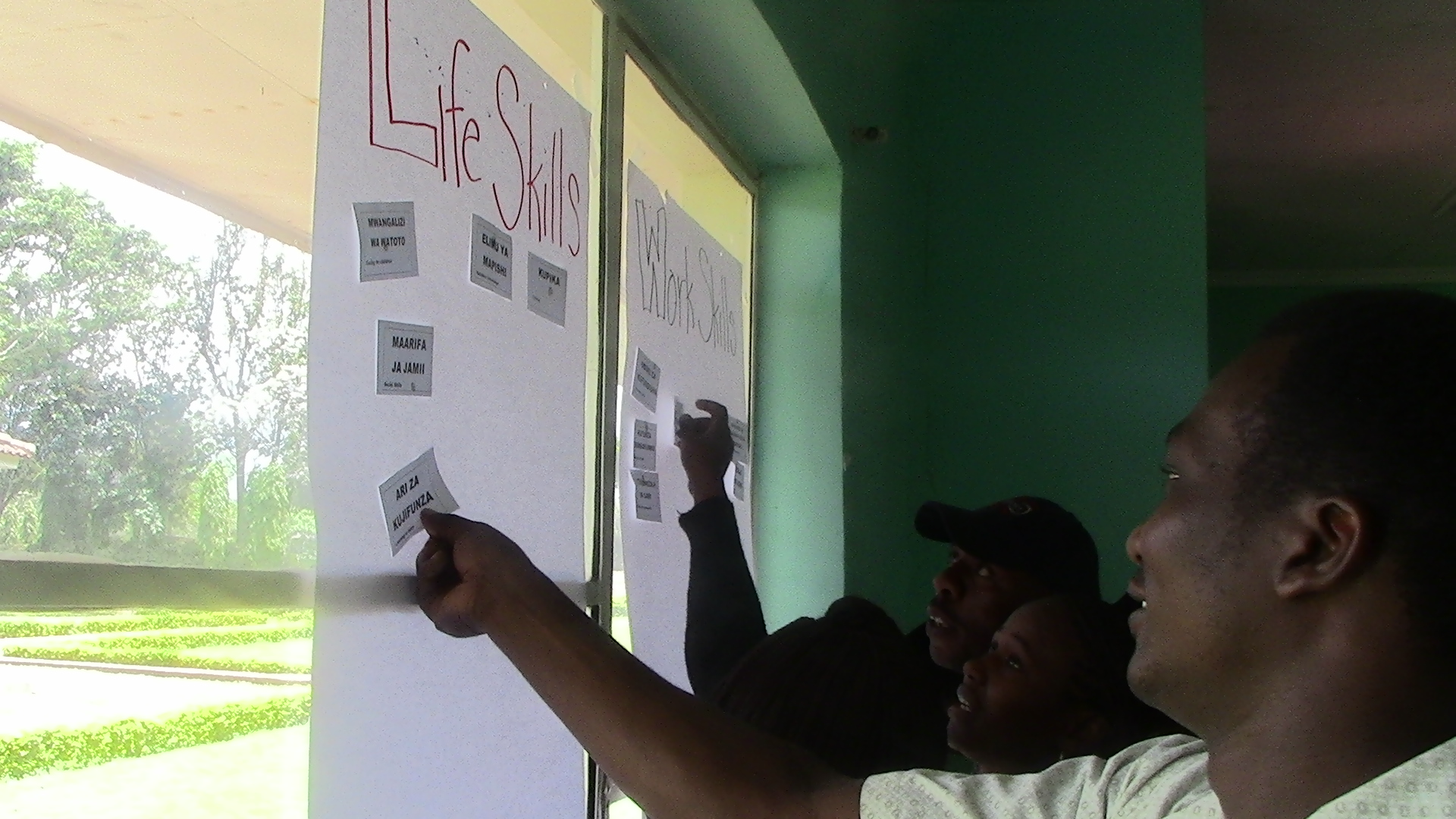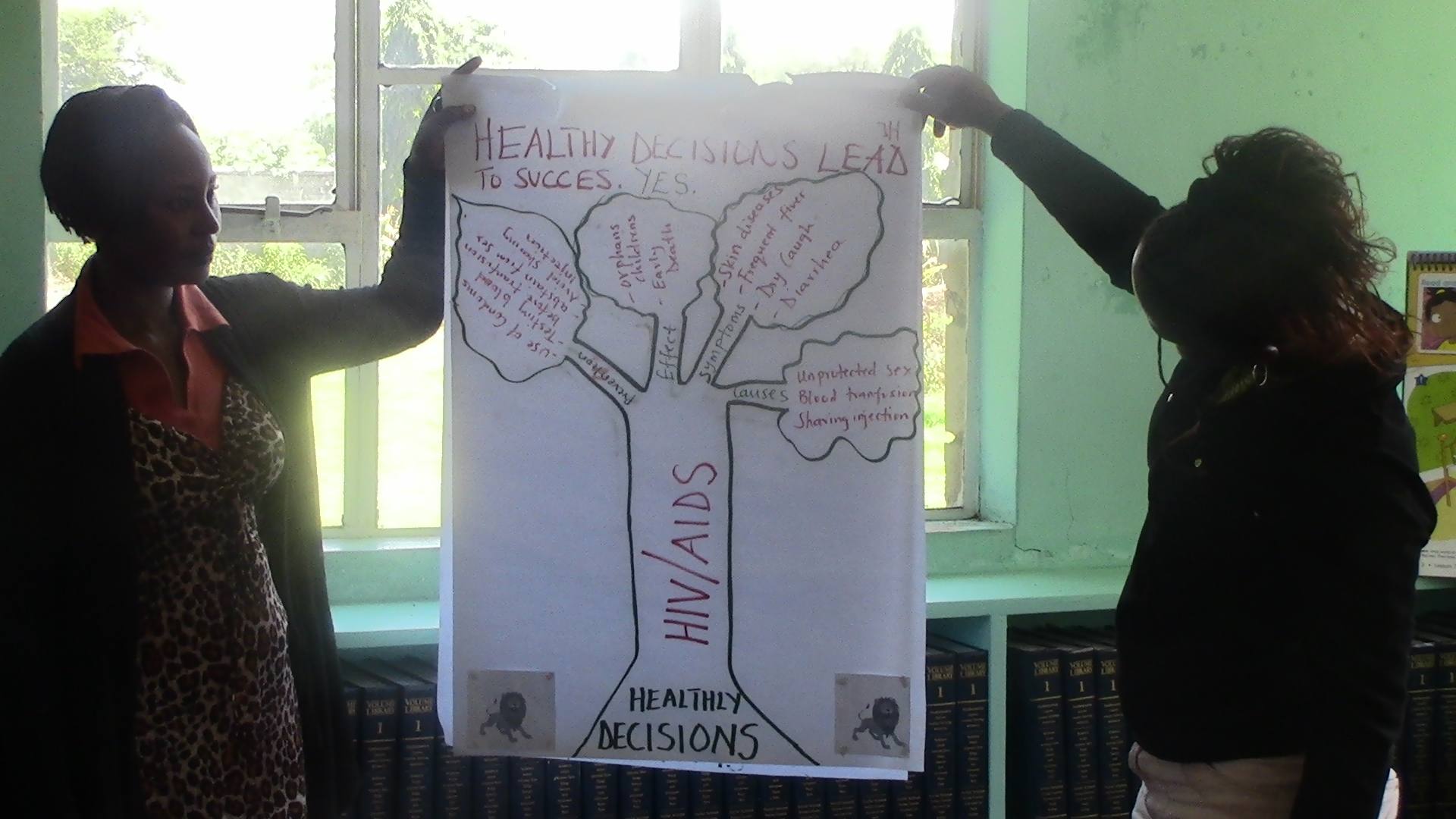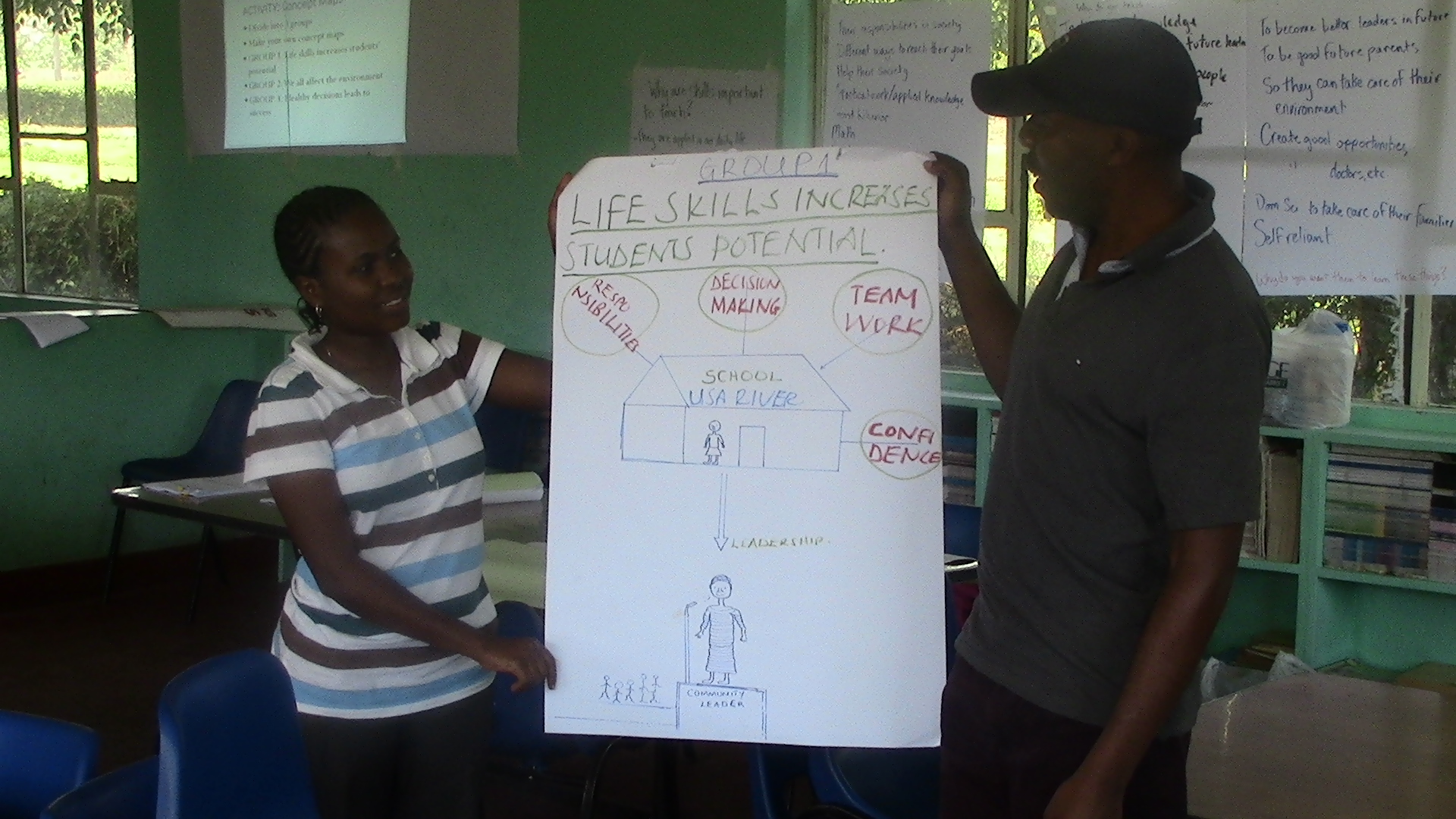
Deep breath—Inhale…1…2…3…and exhale…
I have just finished my first ever Teacher Training for our Primary School Teachers who are facilitating the life skills education at Usa River Academy. This was a big challenge for me to complete because, while I can train kids with my eyes closed, training teachers is a whole different animal to me! Luckily, the two-day training blew my expectations out of the water!

The training was on Life Skills and Experiential Learning. As an American who grew up with a host of activities, educational opportunities, and camps, these topics are second nature to me. Unfortunately, for teachers in Tanzania, that is rarely the case. Melissa has been working for years to overcome the “chalk and talk” methods of teaching that are usually employed and teaching life skills is no different. While teachers were obviously skeptical in the beginning, as we began talking, sharing experience, and conducting activities, they came fully on board and really began to enjoy the topics that we covered!

We started out the training with (seemingly) simple questions: “Why do we teach?” “What do we want our students to learn?” While these may seem like silly questions, the answers led us to some impactful thoughts and, delightfully, led teachers to the conclusion that life skills are actually EXTREMELY important to the success of their students! Teaching in Tanzania (and basically everywhere else in the world), unfortunately doesn’t get the respect that it deserves. The teachers were sort of surprised to voice the conclusion that THEY are responsible for creating the future leaders of their country. It’s sort of a big deal. And it is no small task.
After that little ego-boost and jolt of motivation, we moved on to HOW we are going to work together to create the future that we want to see. One of the favorite topics involved study of the brain and how our neurons connect. While it seems like an odd topic, the point that I wanted teachers to grasp was how important it is to teach SKILLS, not just information. Teach students HOW to think, not WHAT to think.

By the end of the two days, teachers had a better understanding of WHY we should use participatory teaching methods, why life skills are VITAL to our students’ success, and even how much our kiddos are capable of now. We discussed, in-depth, the Experiential Learning cycle, which is a 4-step process in allowing students to act, analyze results, form opinions, make changes, and start all over again. Why teach students about business, when they can start a business? Why tell students how to be a leader when they could just lead.
As I said, the teachers began as skeptics, but as we worked through the goals, methods, and participants of education, they better understood the role that they can play in facilitating a holistic education for their students. It turns out the goal of education is to create self-reliant, involved, problem solving adults in a few years…which, conveniently enough, is also the goal of TFFT and Full Circle. Who would have thought?!

The biggest success of the training was watching the participants come to the conclusions that:
- Life skills are hugely important to their student’s success, and
- Using participation and experiential learning does a much better job of educating their students than the usual methods.
While I could have told them these little nuggets of wisdom, their own words ensure that they become advocates for the work of Full Circle. They are excited and fired-up to be teachers, and now they have more tools to become the best teachers that they can be—the kind of teacher we need to create a brighter, stronger future for Tanzania!